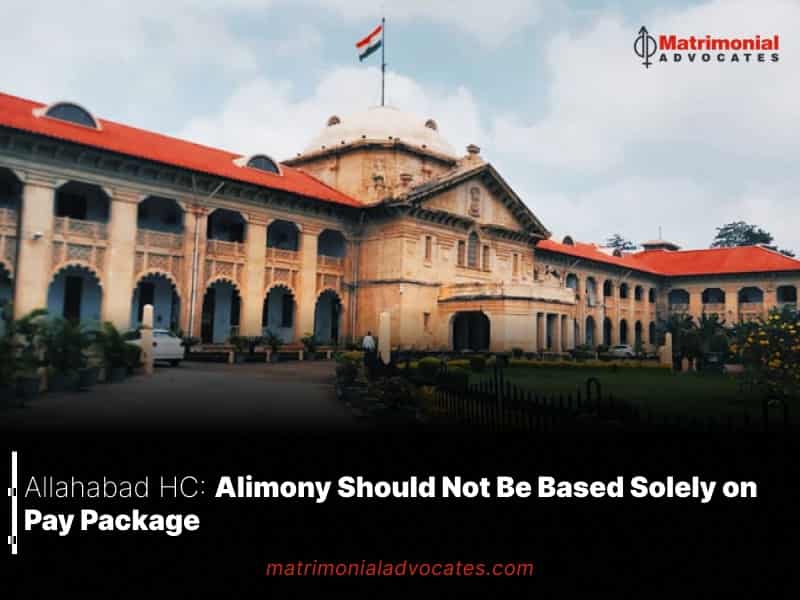
The Allahabad High Court ruled that courts should not base alimony decisions solely on the parties’ pay packages. The Court upheld the family court’s decision to grant permanent alimony to the wife, noting that the husband had legally remarried and now had additional responsibilities and financial obligations.
A Division Bench of Justice Saumitra Dayal Singh and Justice Donadi Ramesh observed, “While money may always short to fulfill all human needs, the Courts may not look at the pay package of the parties alone to determine the amount of alimony that would be awarded.”
Advocate Abha Gupta appeared for the appellants, while Advocate Manish Tandon represented the respondent.
The wife appealed under Section 19 of the Family Court Act, 1984, challenging the family court’s judgment and order, which had issued a decree under Section 25 of the Hindu Marriage Act, 1955 (HMA), granting a lump sum alimony. The family court also adjusted a portion of the amount for the daughter, referencing a previous divorce decree under Section 13 of the HMA on grounds of cruelty.
During the separation, the family court issued an order under Section 125 of the Cr.P.C., awarding maintenance to the wife and daughter (the appellants), with the monthly maintenance later being revised under Section 127 of the Cr.P.C. The parties informed the Court that, although recoveries were pending, they had reached a compromise.
The husband informed the Court that after the dismissal of the First Appeal, he remarried and now has three children from his second marriage. He also noted that he is responsible for the care of two siblings with special needs.
Noting that the marriage lasted only three years and that the husband was already encumbered with liabilities under Section 125 Cr.P.C., the High Court determined that the alimony awarded by the family court did not require any changes.
The Court observed, “In the entirety of facts and circumstance where the marriage between the parties survived only for three years and they have remained separated since then and also considering the fact that the respondent remarried, in accordance with law giving rise to his further responsibilities and financial liabilities, as also considering the fact that earlier the respondent was saddled with the liabilities under Section 125 Cr.P.C., primarily, we do not find any good ground to interfere with the order of the award of maintenance of permanent alimony.”
However, the Court recognized the appellants’ claim that the family court had erroneously deducted a part of the permanent alimony awarded to the wife.
“Whatever was paid to the daughter born to the parties, may not have been adjusted against the amount payable to the appellant no.1,” the Bench stated.
Consequently, the Court ordered, “The amount so deposited may be released in favour of appellant no.1 subject to both appellants giving an undertaking before the learned Court below to withdraw from all cases/proceedings instituted against the respondent include those seeking more money either towards alimony or maintenance and further undertaking not to institute any other proceeding civil or criminal.”
Accordingly, the High Court partly allowed the appeal.





